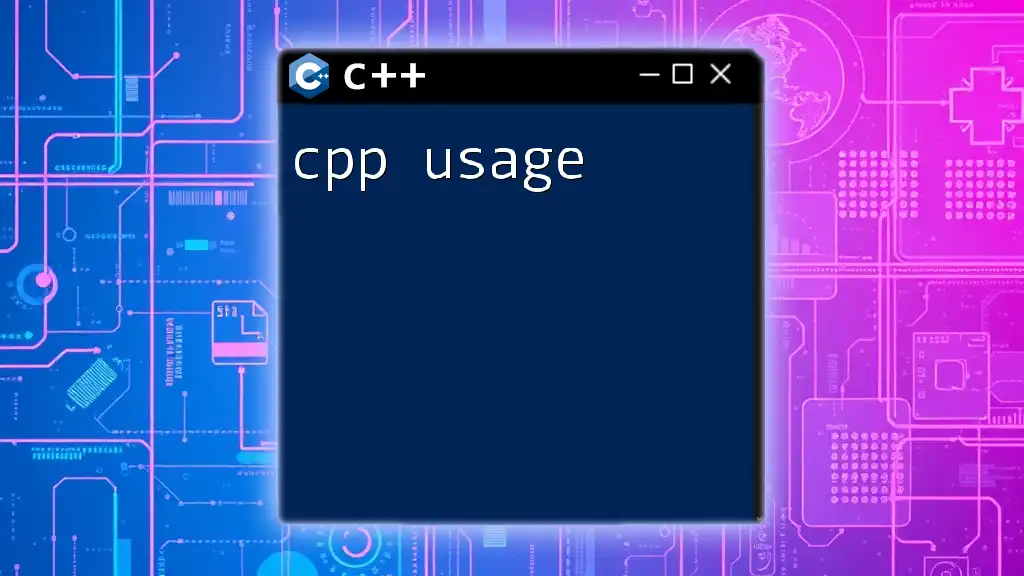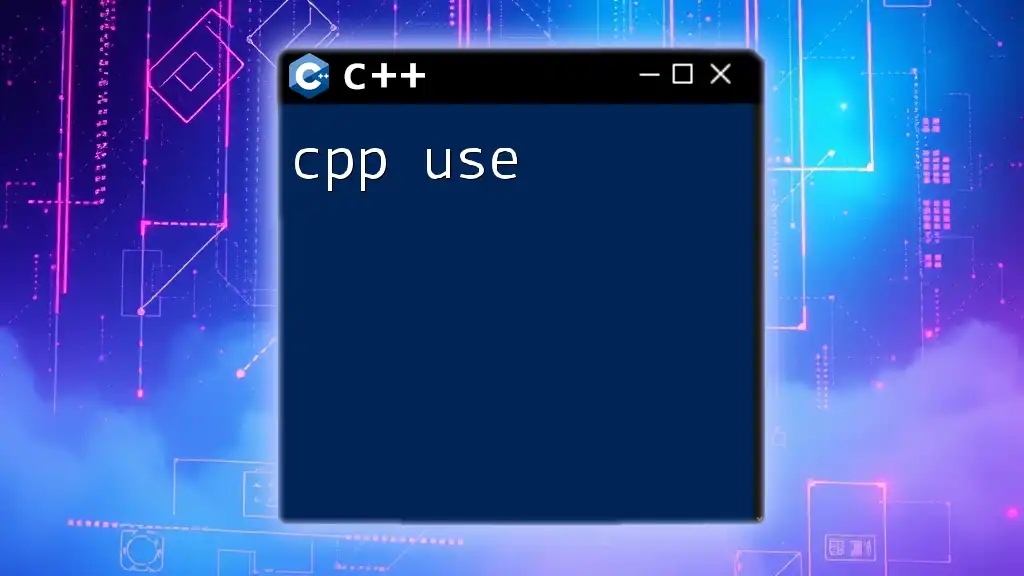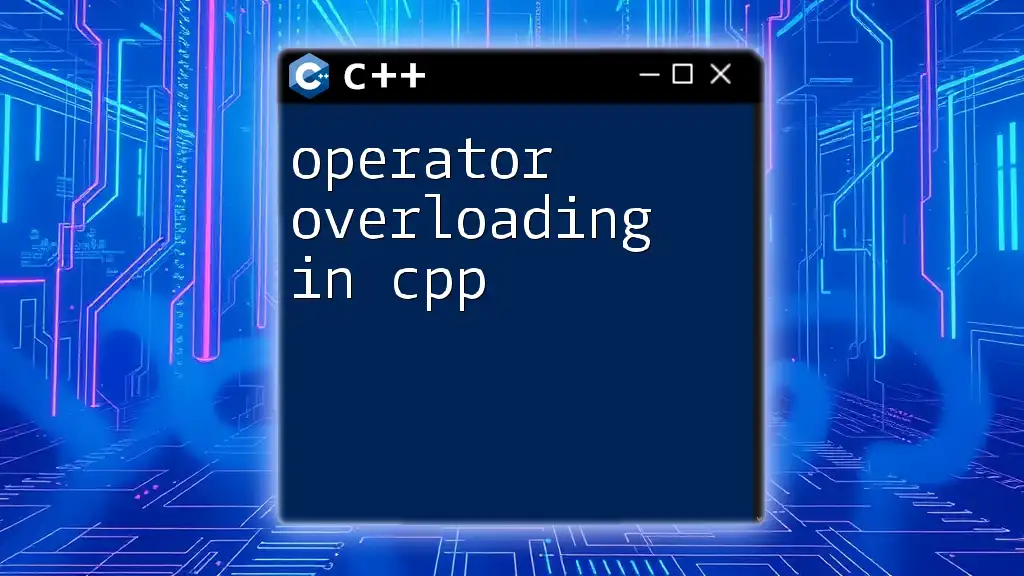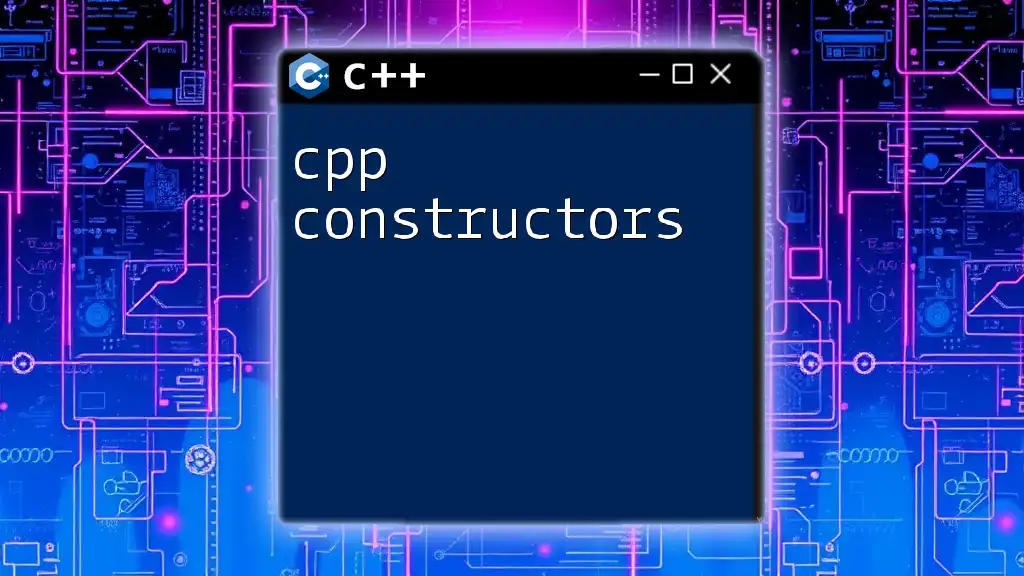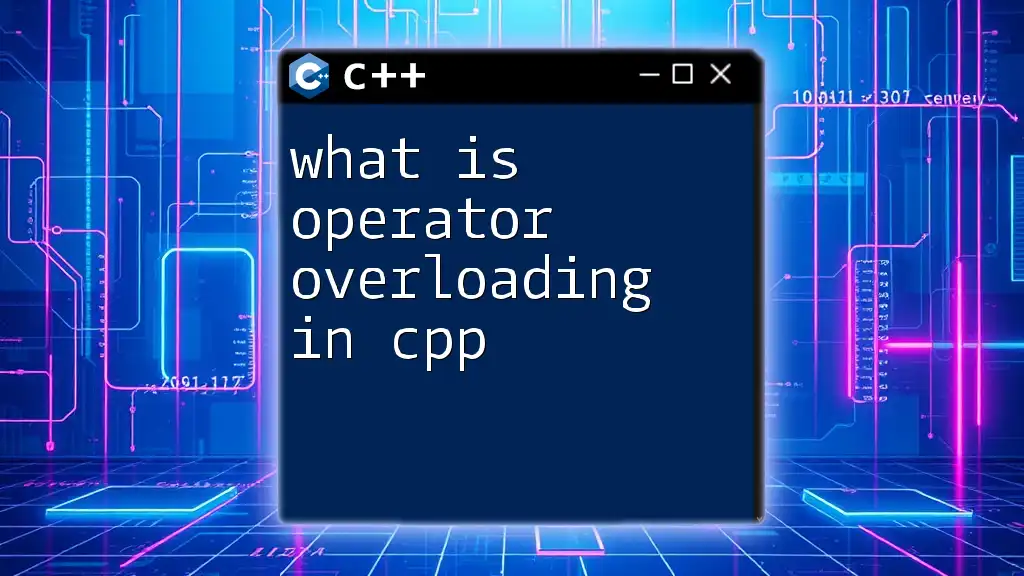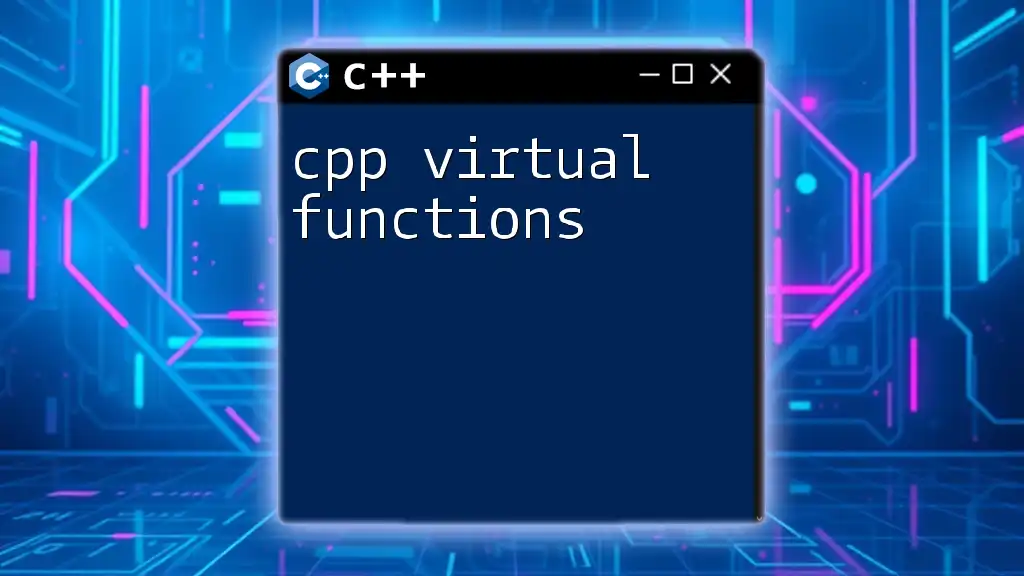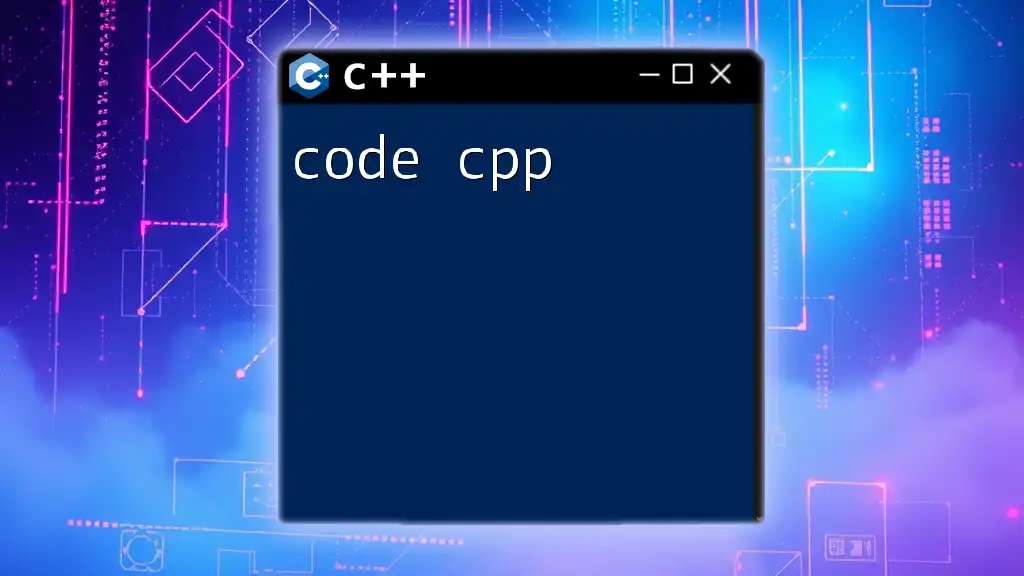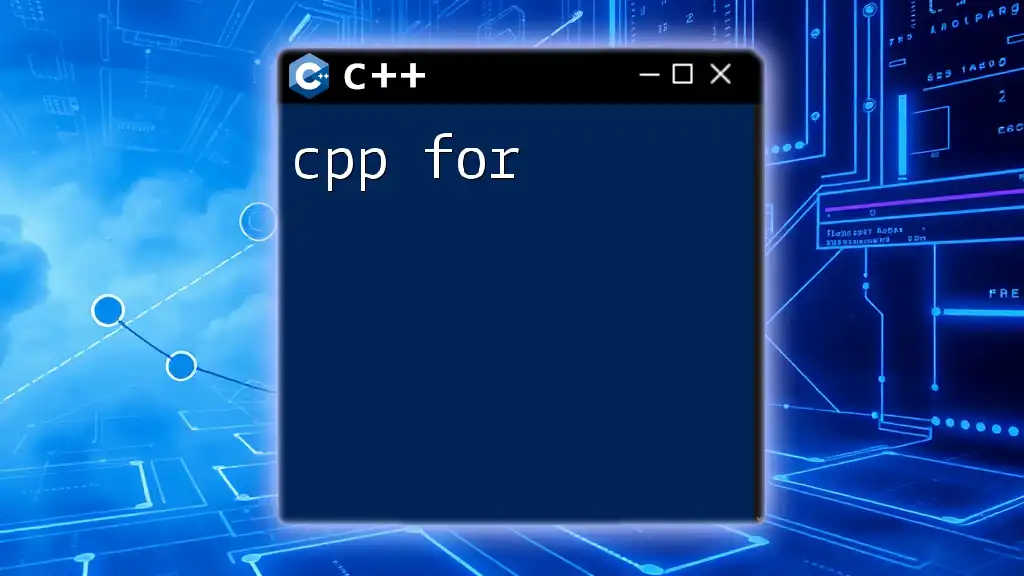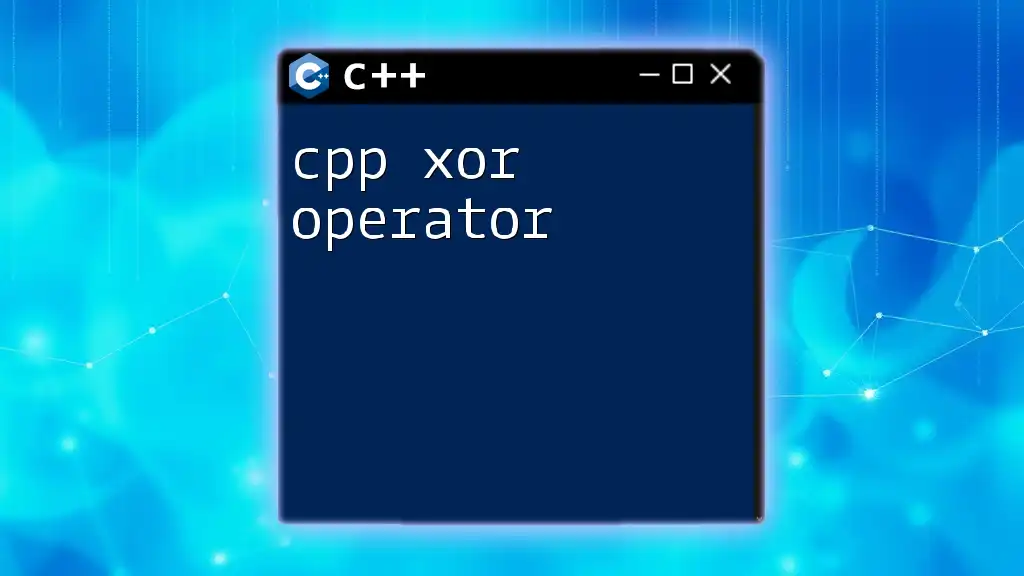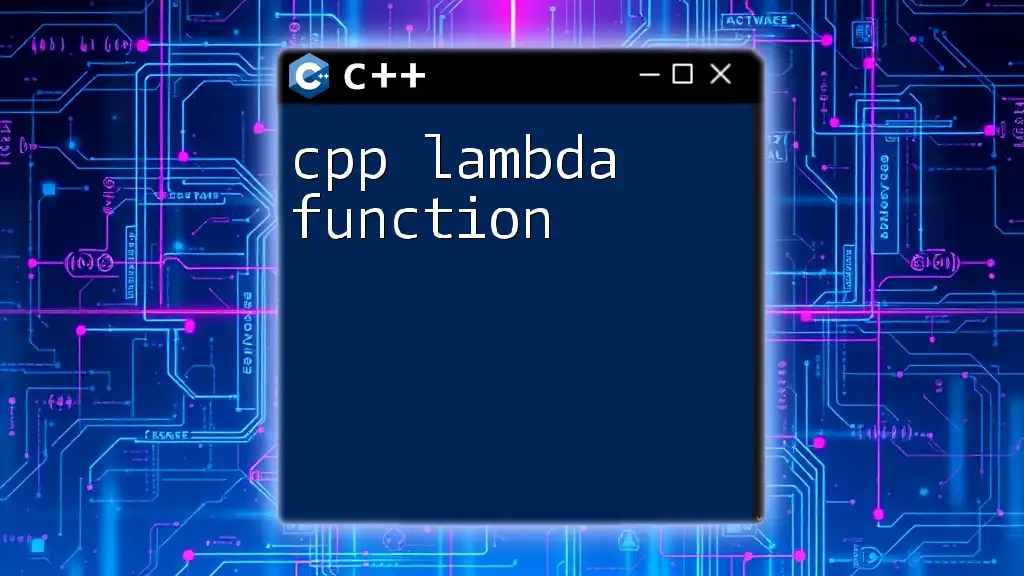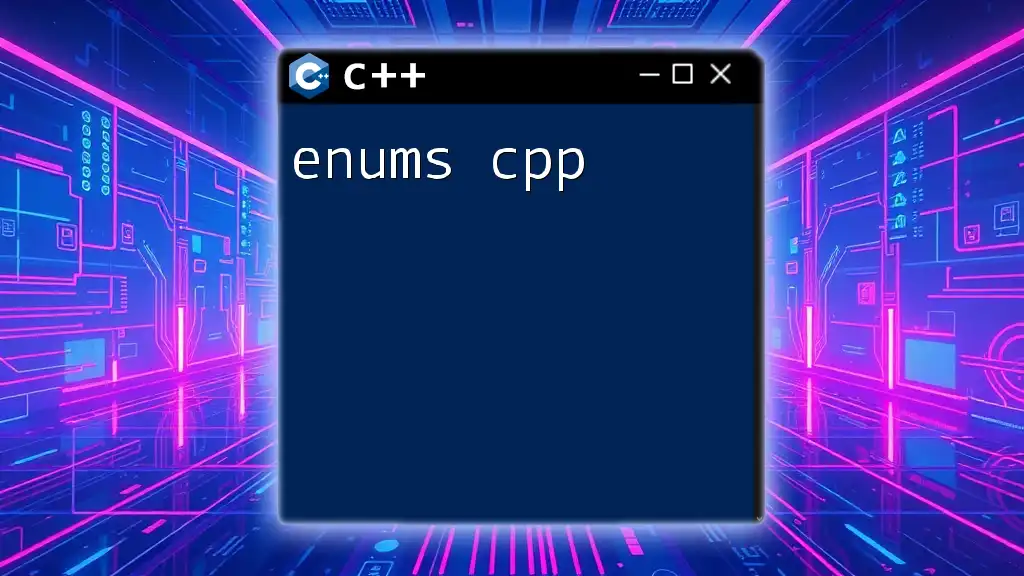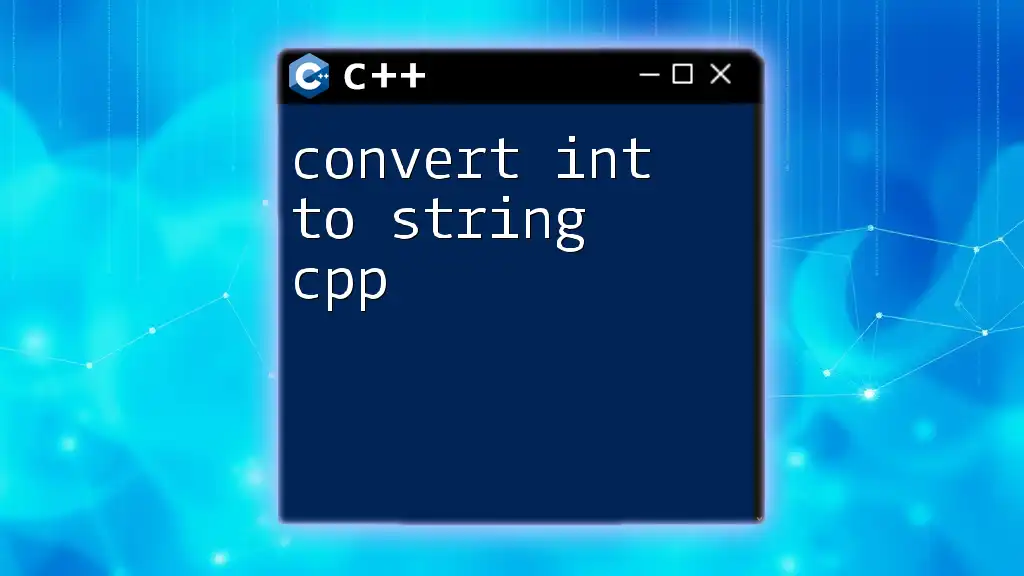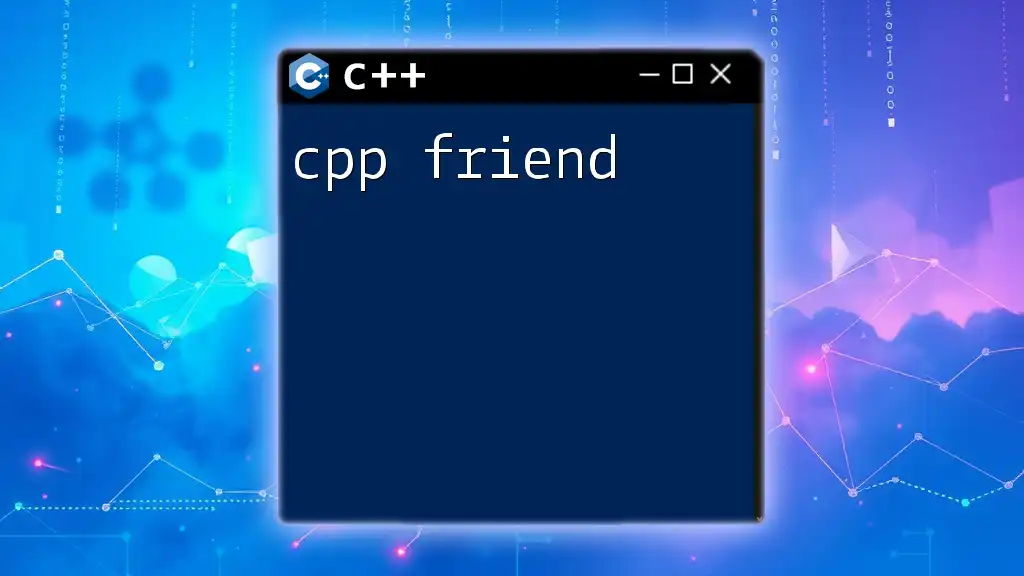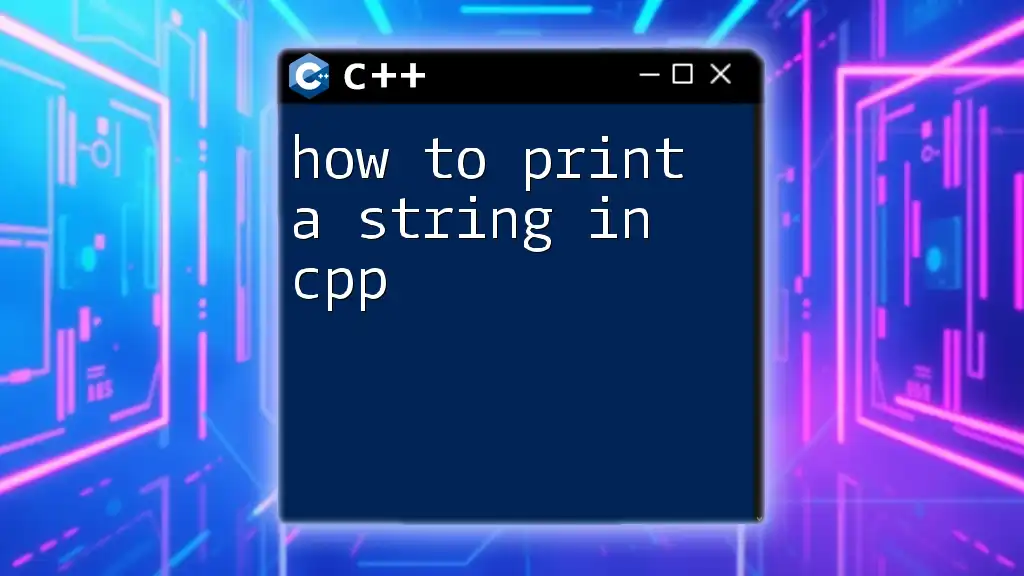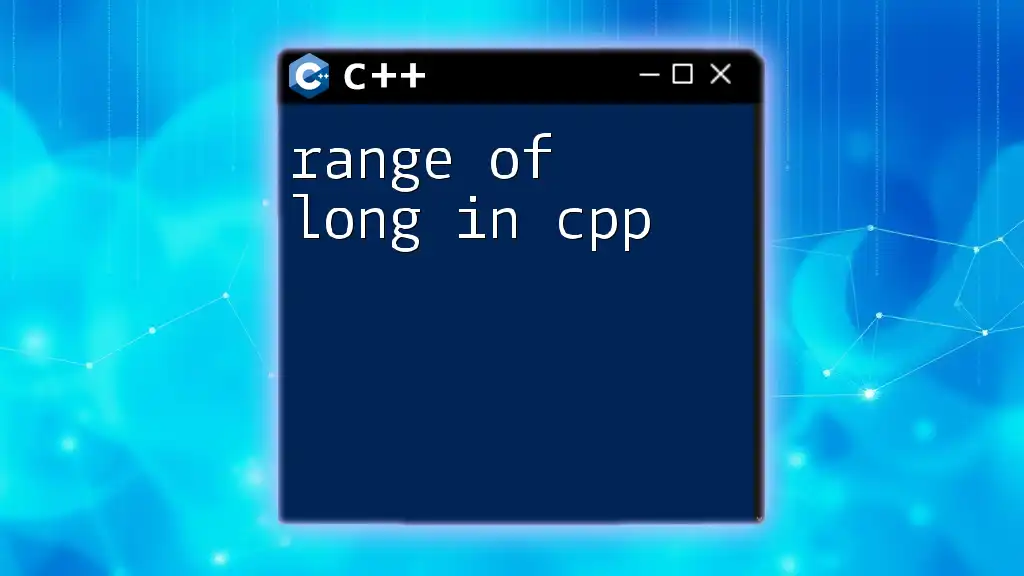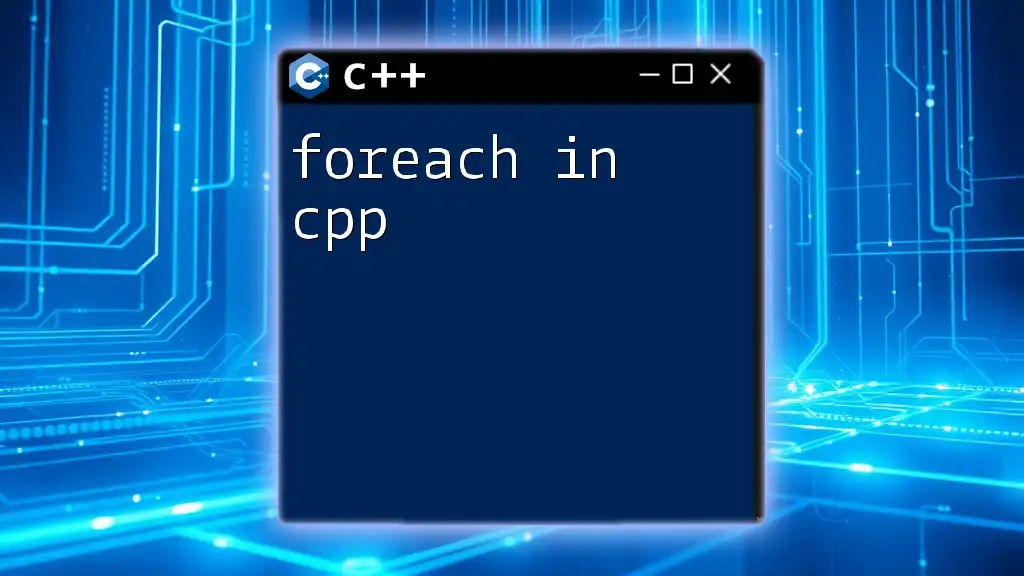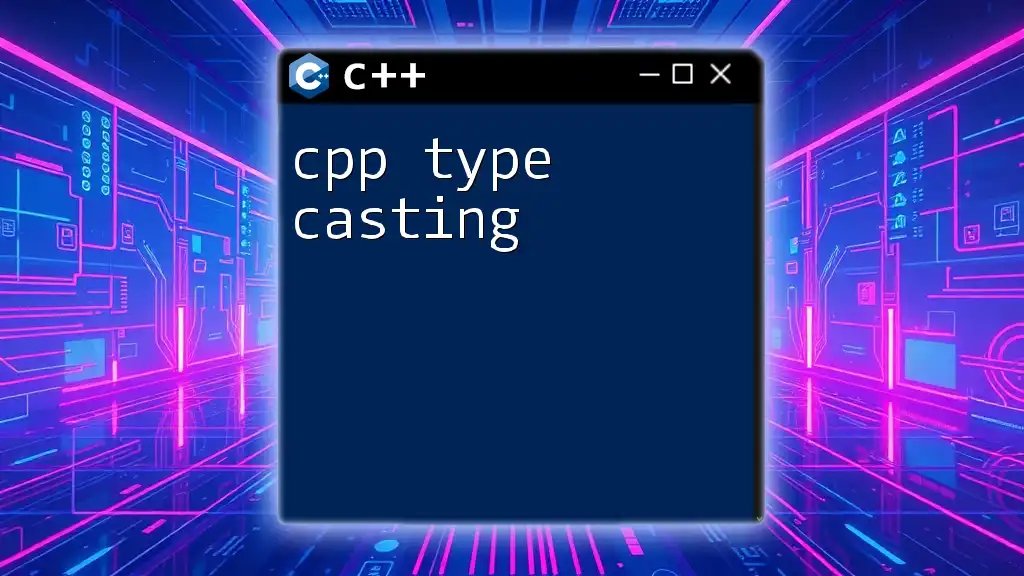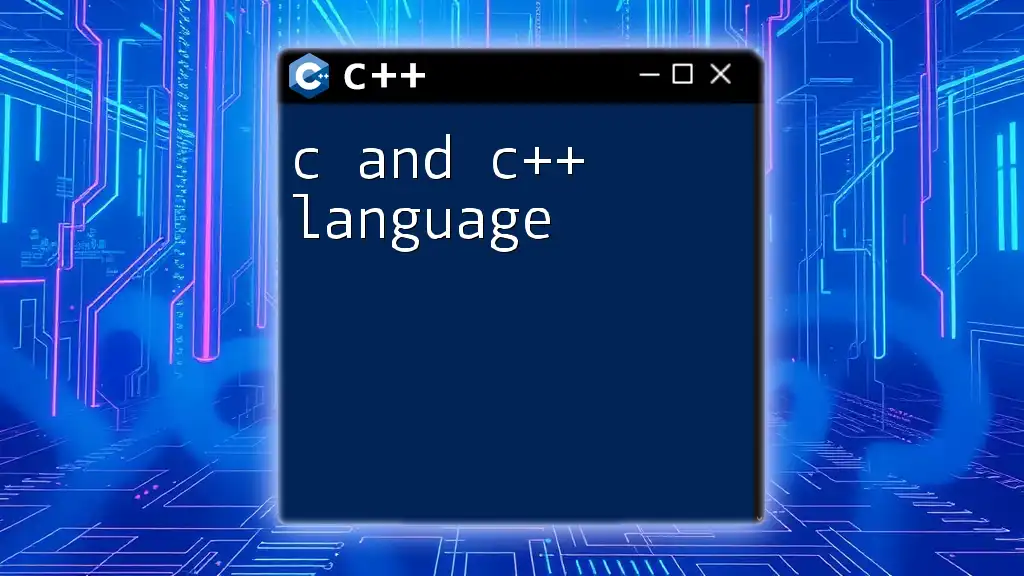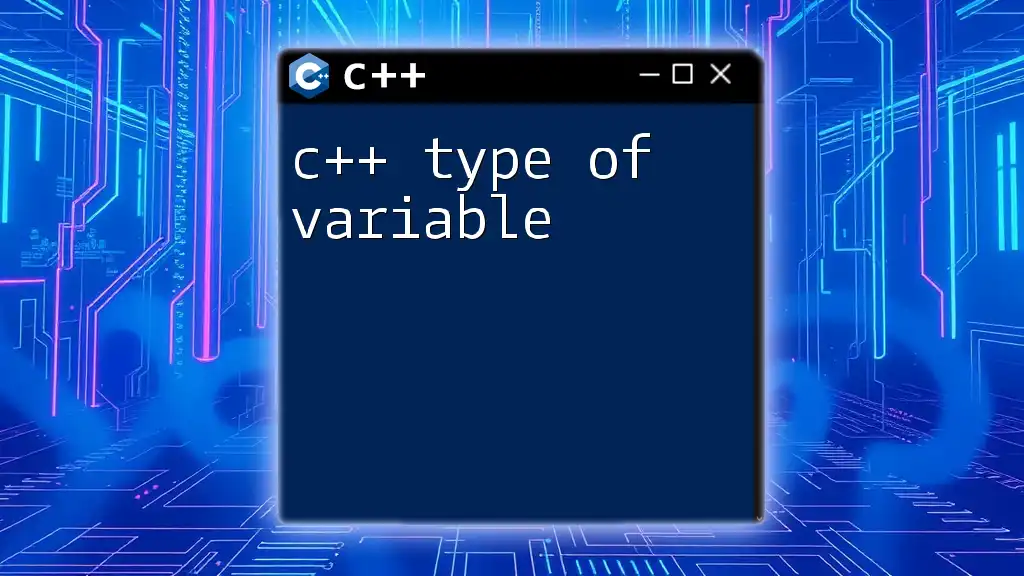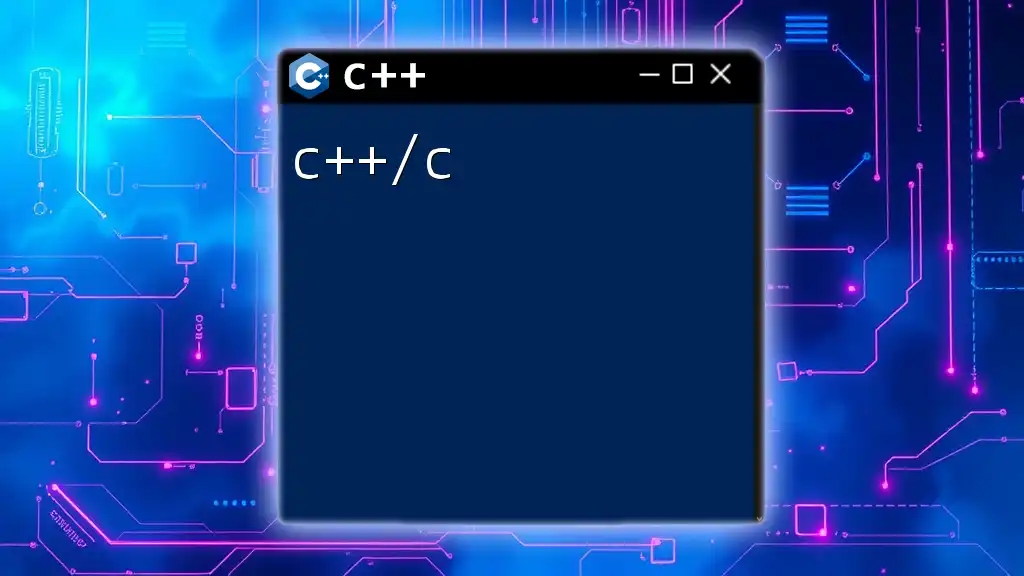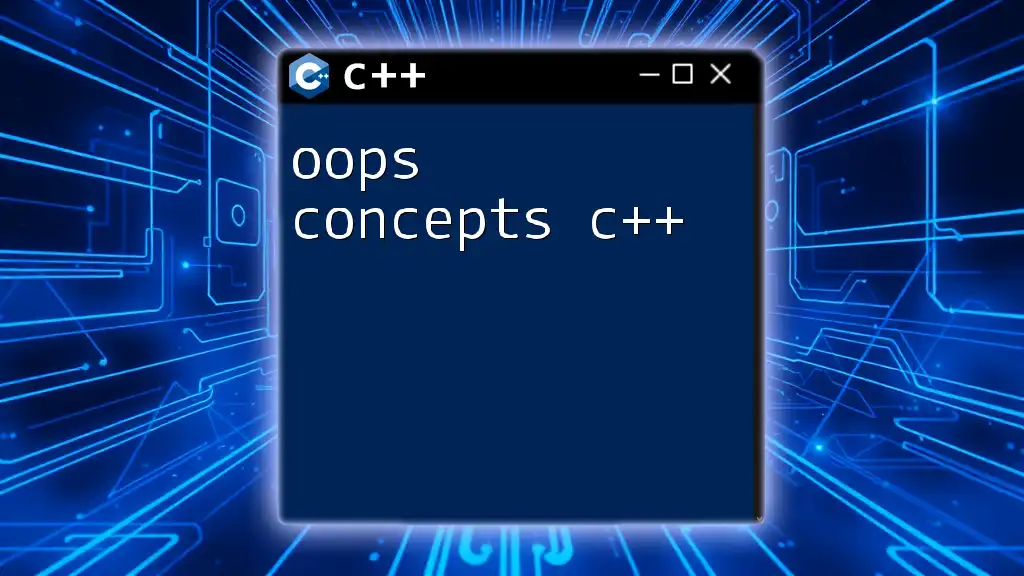Introduction to C++ Programming
C++ is a highly versatile and powerful programming language that allows developers to create a wide range of applications, from low-level system software to advanced game engines. Originally developed as an extension of the C programming language, C++ includes features that support both procedural and object-oriented programming. This unique blend of paradigms makes it an ideal choice for developers who need the control offered by low-level programming and the abstraction afforded by high-level programming.
Basic Syntax and Structure
The syntax and structure of a C++ program form the foundation of writing effective code. Knowing how to properly structure your program with the correct syntax is critical for executing commands flawlessly.
C++ Program Structure
A typical C++ program begins with include directives that import libraries or header files, followed by the main function, where execution starts. The main function returns an integer value, usually 0, which signifies the successful completion of the program.
Here’s a simple structure:
#include <iostream> // This directive tells the compiler to include the iostream library
int main() {
std::cout << "Hello, World!" << std::endl; // Output statement that prints to the console
return 0; // Indicates that the program ended successfully
}
In this snippet, #include <iostream> allows you to use input-output stream objects like std::cout and std::cin. The std::endl is used to insert a newline character and flush the output buffer, ensuring that the text is displayed immediately.
Data Types in C++
Understanding the data types available in C++ is crucial because they determine the type of data you can work with and the operations you can perform.
Working with Integers
In C++, integers are a fundamental data type represented by the int keyword. They can store whole numbers, both positive and negative.
int number = 5; // Example of an integer variable
You can perform various arithmetic operations with integers:
int sum = number + 10; // Adds 10 to the number
Working with Floats
Floating-point numbers are represented using the float type, allowing for the representation of decimal values. For instance:
float decimalNumber = 5.25f; // The 'f' suffix indicates this is a float literal
Working with floating-point numbers allows for decimal precision, which is useful in applications requiring real-number calculations. C++ also provides double for double-precision floating-point numbers, which allows for greater precision, at the cost of more memory.
To understand how floats and integers interact in expressions, you might want to read about their return types in our section on what does float/int return in C++.
Variables and Constants
Variables in C++ are symbolic names associated with data stored in the memory. To declare a variable, you specify the type followed by the variable name:
int age = 25; // Declares an integer variable 'age' and initializes it with 25
Constants can be declared using the const keyword and hold fixed values throughout program execution.
const float PI = 3.14f; // PI has a constant value that cannot be modified
Utilizing variables and constants responsibly can lead to more maintainable, readable code.
Control Structures
Control structures dictate the flow of execution in your program. By effectively using these structures, you can write more dynamic and responsive programs.
Conditional Statements
Conditional statements, such as if, else if, and else, enable you to execute code based on specified conditions, thus introducing decision-making capabilities to your programs.
int temperature = 30;
if (temperature > 25) {
std::cout << "It's a warm day!" << std::endl;
} else {
std::cout << "It's a cool day!" << std::endl;
}
In this example, the program checks whether the temperature exceeds 25 degrees. If true, it outputs that it’s a warm day; otherwise, it indicates a cool day.
Loops in C++
C++ provides powerful loop constructs: for, while, and do-while loops, which allow for repetitive execution of a block of code.
What is a For Loop?
The for loop is particularly useful when you know how many times you want to iterate.
for (int i = 0; i < 5; i++) {
std::cout << "Iteration: " << i << std::endl; // Output the current iteration
}
This loop initializes i to 0, checks if it is less than 5, and if so, executes the block, subsequently incrementing i by one. For a detailed understanding of how this works, check out our guide on for loops in C++.
While and Do-While Loops
- While Loop: Useful when the number of iterations is unknown. The loop continues until a specified condition becomes false.
int j = 0;
while (j < 5) {
std::cout << "While Loop Count: " << j << std::endl;
j++; // Increment j
}
- Do-While Loop: Similar to the while loop, but this guarantees that the block of code is executed at least once.
int k = 0;
do {
std::cout << "Do-While Loop Count: " << k << std::endl;
k++;
} while (k < 5);
These statements provide flexibility in program control and allow you to handle various situations and user inputs effectively.
Functions in C++
Functions are reusable blocks of code that perform specific tasks. They improve modularity and readability by avoiding code duplication.
Function Definition and Declaration
Functions must be defined before they can be called. The format includes the return type, the function's name, and parentheses for parameters.
int add(int a, int b) {
return a + b; // Adds a and b, returning the result
}
Calling this function would involve passing it two integers:
int result = add(10, 20); // result will now hold 30
Function Overloading
Function overloading allows multiple functions to share the same name as long as their parameter lists differ either in number or type.
float add(float a, float b) {
return a + b; // Adds two floats
}
int add(int a, int b) {
return a + b; // Adds two integers
}
This flexibility allows you to perform addition for both integers and floats using the add function, depending on the data types provided.
Lambda Expressions for Custom Sorting
Lambda expressions, introduced in C++11, are great for implementing functional-style programming. They allow you to create unnamed function objects at runtime.
std::vector<int> vec = {4, 2, 5, 1};
std::sort(vec.begin(), vec.end(), [](int a, int b) {
return a < b; // Sorts the vector in ascending order
});
In the above example, the lambda is passed to std::sort, which sorts the vector based on the criteria defined in the lambda expression. To explore more about the versatility of lambdas, you can refer to our section on lambdas for custom sort in C++.
Data Structures and Algorithms
Understanding data structures and algorithms is critical for efficient programming. C++ provides various tools to store and manipulate data effectively.
Arrays and Multidimensional Arrays
Arrays are collections of elements, all of the same type, allowing fixed-size data storage. For example:
int numbers[5] = {1, 2, 3, 4, 5}; // An array of integers
You may also work with multidimensional arrays, which act like matrices.
int matrix[3][3] = {
{1, 2, 3},
{4, 5, 6},
{7, 8, 9}
}; // A 3x3 matrix
Arrays allow for quick access to elements by index, making them efficient for structured data manipulation.
Strings in C++
Strings in C++ can be handled using the std::string class, making string manipulation easier compared to traditional C-style strings. You can easily concatenate strings, find their length, or compare them:
std::string greeting = "Hello, ";
std::string name = "John";
std::string message = greeting + name; // Concatenation
Strings provide built-in functions that allow a myriad of operations, such as finding a substring or changing case, enhancing usability.
Introduction to Pointers
Pointers are a powerful feature in C++ that allows you to manage memory directly. A pointer holds the address of a variable rather than the data itself. For example:
int num = 10;
int* ptr = # // Pointer 'ptr' holds the address of 'num'
By dereferencing the pointer (using *ptr), you can access or modify the value stored at that address:
std::cout << *ptr; // Outputs 10
*ptr = 20; // Changes 'num' to 20
Using pointers judiciously can enhance performance but requires care to avoid memory leaks and segmentation faults.
Using Standard Template Library (STL)
The Standard Template Library (STL) provides a collection of generic classes and functions for handling common data structures like vectors, lists, and maps efficiently.
Searching Elements – find
The STL includes algorithms for searching, sorting, and manipulating data structures efficiently. The find function can be used to search for an element within a container:
#include <algorithm>
#include <vector>
std::vector<int> vec = {1, 2, 3, 4, 5};
auto result = std::find(vec.begin(), vec.end(), 3); // Find number 3
if (result != vec.end()) {
std::cout << "Element found!" << std::endl; // Outputs if found
}
In this example, if the number 3 exists in the vector, a message will confirm its presence. Utilize our section on find function in C++ for further examples and techniques on searching within containers.
Integer and Floating Point Operations
When working with different data types, especially numbers, it's essential to understand how operations can yield different results based on the data type.
Arithmetic Operations
C++ supports various arithmetic operations such as addition (+), subtraction (-), multiplication (*), and division (/). When performing operations, be aware of potential pitfalls:
Division Behavior
When you divide two integers, C++ will truncate any decimal part:
int a = 5;
int b = 2;
int result = a / b; // result will be 2, not 2.5
To get a floating-point result, at least one operand should be a floating-point type:
float result = static_cast<float>(a) / b; // result will now be 2.5
This ensures you understand type casting to achieve the desired outcome in arithmetic operations.
Integer Division with Negative Numbers
The behavior of integer division may vary with negative numbers:
int negResult = -5 / 2; // This will be -2, not -3
This behavior can lead to confusion, particularly if you're not aware of the rules governing integer division in C++. For deep insights on handling division properly, check our guide on integer division with negative numbers in C++.
Logarithmic Operations
In various algorithms, you might need to compute logarithms for scaling or performance enhancements. Here's how you can compute the log base 2 of an integer:
#include <cmath>
int logBase2(int n) {
return log(n) / log(2); // Calculates log base 2 using natural log
}
This formula utilizes the property of logarithms to convert between bases. For further exploration of logarithmic operations, consider our section on log base 2 of an integer in C++.
Advanced Topics
Once you have grasped the basics of C++, it might be worthwhile to explore more advanced topics that expand your capabilities as a programmer.
C++ Projects for Beginners
Developing practical projects can significantly enhance your understanding of concepts. Start with simple applications such as:
- Calculator: Build a basic calculator to perform arithmetic operations.
- Todo List: Create an application to manage tasks, utilizing arrays or vectors to store them.
- Guessing Game: A program where the computer generates a random number, and the user has to guess it.
These projects sharpen your coding skills and reinforce the concepts learned previously. For an array of project ideas to kickstart your programming journey, explore our section on C++ projects.
Interacting with Hardware (Arduino)
Engaging with hardware through C++ can lead to exciting projects in robotics and IoT. With libraries, you can communicate with Arduino boards via serial ports. For instance, reading sensor data from an Arduino or controlling motors can be achieved through C++. To dive into the specifics of implementing Arduino serial communication, check our guide on C++ Arduino serial communication.
Input and Output Operations
Handling user input and output is crucial for interactive applications. Learning the ins and outs of input and output operations allows you to create user-friendly applications.
Standard Input and Output Streams
C++ uses standard input and output streams for interacting with users. The iostream library provides the cin and cout objects to perform input and output operations, respectively.
Printing to Console
The cout object allows you to print messages to the console easily. Here’s an example to display a welcome message:
std::cout << "Welcome to C++ Programming!" << std::endl; // Outputs message with a newline
Using manipulators like std::endl flushes the buffer, so the output is displayed immediately. Explore more about output formatting in our article on printing in C++.
Working with Characters and Strings
Strings and characters are essential for text handling. C++ simplifies working with these data types through the std::string class and the char data type.
Character Data Type
Characters in C++ are represented using the char type. You can declare and initialize a character like this:
char letter = 'A'; // Stores a single character
You might also work with character arrays, though using std::string is generally easier for string manipulations.
Common String Manipulations
With std::string, you can perform a variety of operations such as concatenation, comparison, and substring extraction:
std::string name = "John";
std::string greeting = "Hello, " + name; // Concatenates strings
C++ provides many built-in functions to manipulate strings effectively. For example, to find the length of a string, you can use name.length().
Deleting Characters in Terminal
When creating console applications, managing in-terminal characters might be necessary. You may want to delete previously input characters or handle backspaces. Refer to our guide on how to delete a character in terminal in C++ for an in-depth view of handling user interactions.
Specialized Functions and Features
C++ is rich with specialized functions designed to simplify complex tasks. Learning about these features can greatly enhance your programming efficiency.
Bit Manipulation and Counting Bits
Bit manipulation is a powerful technique, particularly in systems programming, where performance is crucial. You can count the number of bits set in an integer:
int bitCount(int n) {
int count = 0;
while (n) {
count += n & 1; // Increment if last bit is set
n >>= 1; // Shift n right by one
}
return count; // Returns the total count of set bits
}
Understanding how to manipulate bits can help you optimize performance-critical applications. For further exploration on this topic, take a look at our article on bit count in C++.
Utility Functions
C++ provides a variety of utility functions, particularly in the STL (Standard Template Library), that simplify common tasks like sorting, searching, and working with data structures.
Generic Classes in C++
Generic programming allows you to write classes and functions that operate with any data type. This is accomplished using templates, making your code more versatile.
template<typename T>
class Box {
private:
T data; // The data type is determined when an object is instantiated
public:
Box(T d) : data(d) {} // Constructor initializes 'data'
T getData() { return data; } // Returns the contained data
};
You can create instances of Box using different data types:
Box<int> intBox(123); // Box for integers
Box<std::string> strBox("Hello!"); // Box for strings
This flexibility allows code reuse and promotes cleaner programming practices. For more examples and concepts on generic classes, refer to our section on generic classes in C++.
Coding Challenges and Interview Prep
Preparing for coding interviews is a critical step in landing a job as a programmer. Practicing coding challenges can improve your problem-solving skills.
Common Coding Interview Questions
Familiarity with commonly asked interview questions can help you prepare effectively. Questions often cover topics such as data structures, algorithms, and C++ features. Regular practice with coding problems can enhance your algorithmic thinking and coding proficiency. For insights into interview-ready problems, visit our guide on coding interview questions for college recruitment in C++.
C++ Comparison with Other Languages
Understanding how C++ differs from other programming languages, such as C# or Python, can help you leverage its strengths.
C# vs C++
C++ is a lower-level language than C#, meaning it provides more direct control over memory management and system resources. This makes C++ favorable for high-performance applications but increases complexity. In contrast, C# offers features such as garbage collection and a simpler syntax, making it easier for rapid application development. For a comprehensive comparison between the two languages, refer to our article on C# vs C++.
Conclusion
In summary, C++ is a robust programming language that provides numerous features and capabilities for software development. By mastering its syntax, control structures, functions, and advanced features, you position yourself to tackle a wide array of programming challenges.
Additional Resources
As you continue your learning journey, keep these resources in mind:
- Books: Look for authoritative texts on C++ programming that delve deeply into concepts.
- Online Communities: Engage with forums like Stack Overflow or C++ focused subreddits for peer support and insights.
Learning C++ is a rewarding experience that equips you with invaluable skills, opening doors to diverse opportunities in the tech landscape. Keep practicing, exploring new projects, and you will see significant progress in your programming abilities!






